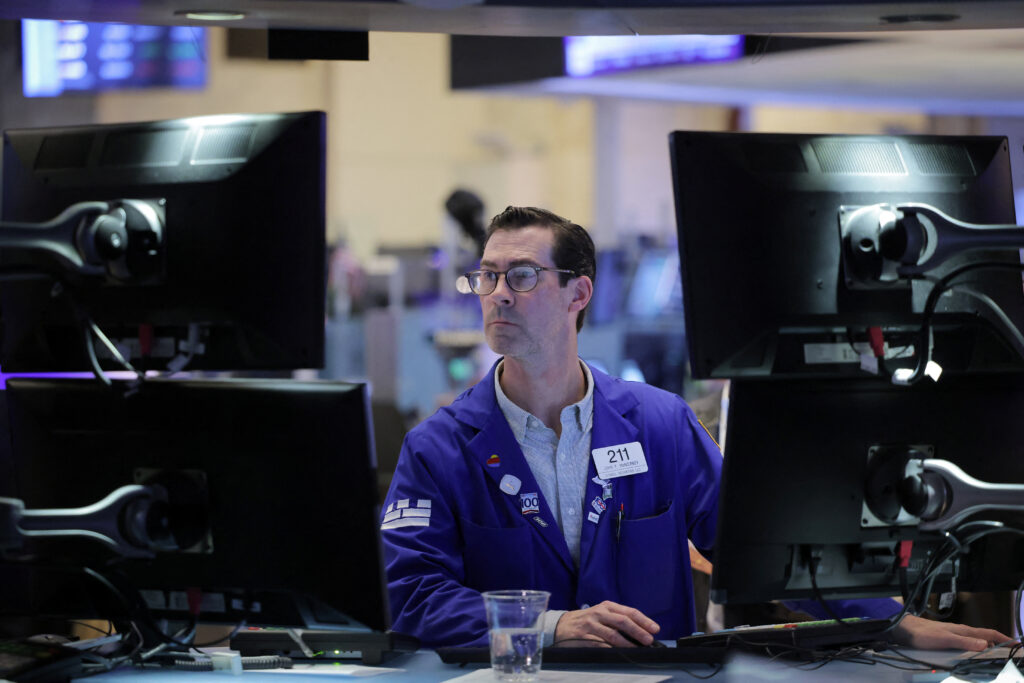Commercial aviation drives around 10 million jobs in the US and is a critical economic sector. Around $1.25 trillion in 2022, or 5% of the US GDP, is derived from commercial aviation. U.S. airlines operate over 25,000 flights transporting 2.5 million passengers to/from almost 80 countries and over 59,000 tons of cargo to/from more than 220 countries daily. It’s impossible not to discuss the significance of Delta Airlines when talking about the best airline stocks to buy in 2024. This blog will discuss the history, performance rate, and future prediction of Delta Airlines stock prices.
Overview of Delta Airlines
As of January 2023, Delta Air Lines has assets of $73.13 billion and $58 billion in revenue, making it the largest airline in the world. The US airline was founded in 1924 and currently operates over 900 planes in different parts of the world. With major hubs strategically located in Detroit, Minneapolis, and Atlanta, Delta has developed into a significant player in the aviation industry.
Introducing the first in-flight entertainment system is one of Delta’s historical turning points, demonstrating the airline’s dedication to innovation. In order to enhance the traveler experience, the airline has continuously updated its fleet over time, adding fuel-efficient aircraft and using cutting-edge technologies. With a solid financial standing, Delta consistently ranks among the best airline stocks globally from experts’ perspective. With the 2008 acquisition of Northwest Airlines, its standing was further enhanced, and its route network expanded. Delta’s adaptability and persistence under pressure demonstrated its operational effectiveness and strategic decision-making.
Price of a Delta Airlines Stock and trading range
Delta Air Lines (DAL) finished at $42.68 in today’s trading session, up +1.04% from the previous day. The stock returned more than the 0.11% daily loss of the S&P 500. In the meantime, the technology-heavy Nasdaq witnessed a drop of 0.41%, while the Dow saw an increase of 0.12%.
The airline’s stock has increased by 4.27% over the last month, outpacing gains of 2.7% for the S&P 500 and 1.84% for the Transportation sector. The 52-week trading stands at $30.60-$49.81.
What are the experts saying about Delta Airlines stock?
Investors and analysts will be closely monitoring Delta Air Lines’ performance in its next earnings release. The company’s estimated earnings per share (EPS) are $0.34, up 36% from the same quarter the previous year. In addition, our most recent average estimate predicts revenue of $12.95 billion, up 1.47% from the same period last year.
For the full fiscal year, the Delta Airlines Stock forecast shows changes of +5.12% and -0.25%, respectively, from the previous year in earnings per share of $6.57 and revenue of $57.91 billion.
Investors should also take note of any updates to analyst estimates for Delta Air Lines. Current updates typically take into account the most recent short-term business trends. Positive revisions in forecasts, therefore, reflect analysts’ increased confidence in the company’s business performance and earnings potential.
What influences the price of an airline stock like Delta?
Several factors, such as revenue, profitability, fuel costs, foreign exchange rates, etc., influence the price of airline stocks. Enterprise value (EV)-to earnings before interest, taxes, depreciation, amortization, and rent (EBITDAR) is the most widely used multiple in the valuation of airlines. The EBITDAR formula is:
Rent and Restructuring Expenses + EBITDA = EBITDAR
The primary purpose of EBITDAR is to evaluate the performance and financial standing of businesses that have undergone restructuring in the previous year. It is also utilized by companies like airlines, who have particular rental expenses related to their fleet of airplanes, warehouses, or other significant assets that are essential to their operations.
Operating profit is more comparable and realistic when those primarily non-cash elements are removed from the assessment. Because airline stocks have large fixed costs and significant capital expenditures (CapEx) are included in this metric, free cash flow (FCF) is also used to value airline stocks. The easiest way to determine free cash flow is to subtract capital expenditures from operational cash flow; both amounts are shown on the cash flow statement.
Another Profit driver for Delta- Credit Cards!
In addition to selling tickets, Delta Air is one of the world’s biggest credit card companies. These cards provide high-margin payments revenue while keeping users loyal to Delta and its loyalty program. American Express, which manages the credit card lending and payment systems for Delta, is its partner.
American Express paid Delta $6.8 billion in revenue-sharing payments in 2023, or 11.7% of its total revenue. Credit card income is anticipated to increase by 10% annually and account for an even greater share of the company’s revenue in the upcoming year. In the long run, this should continue to be a growth engine for Delta and may even help it increase profits if the segment grows to be a more significant portion of the combined company.
Final Thoughts: Should you invest in it or not?
As per Delta Airlines’ stock forecast, the Zacks Consensus Estimate for the current year has declined 6.4% over the past month to $6.24.
Analysts’ growing pessimism over the company’s earnings prospects, as indicated by strong agreement among them in revising EPS estimates lower, could be a legitimate reason for the stock to plunge in the near term.
The size of the recent change in the consensus estimate, along with three other factors related to earnings estimates, has resulted in a Zacks Rank #4 (Sell) for Delta.
Therefore, taking the Buy-equivalent ABR for Delta with a grain of salt could be wise.
Peter Williams, a financial writer with over five years of experience, specializes in covering stock market movements, bond markets, commodities, and macroeconomic trends.










